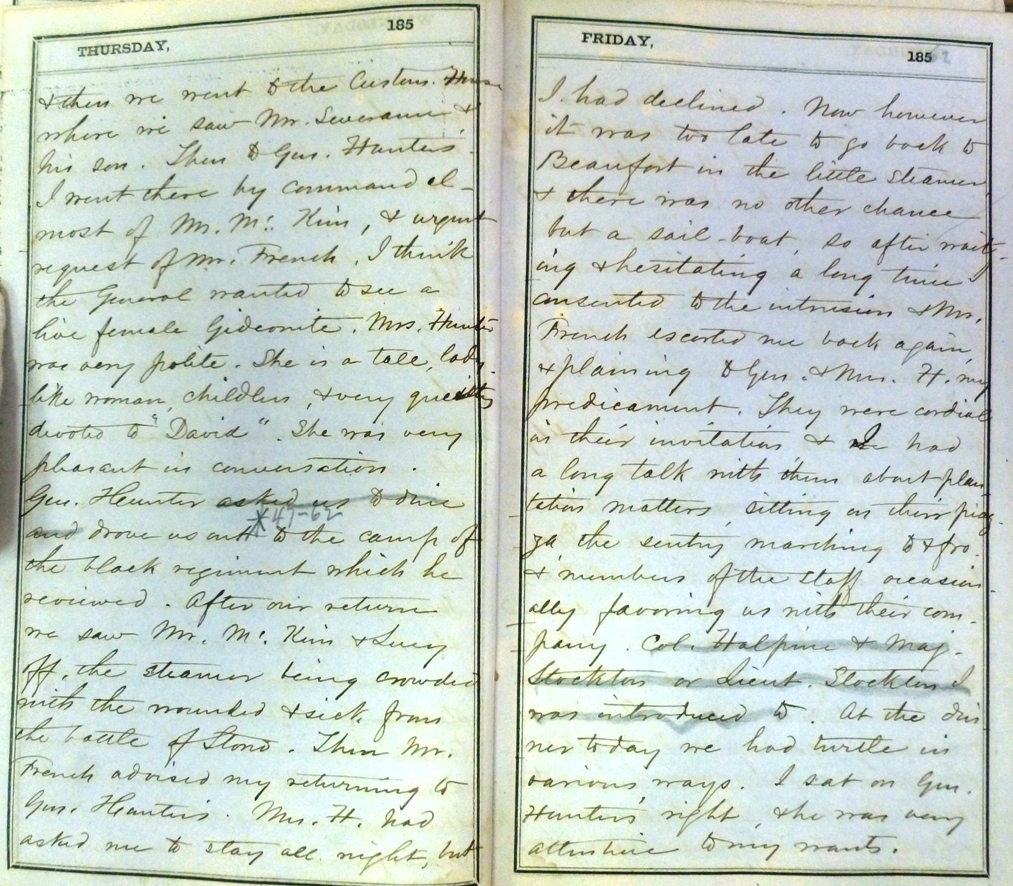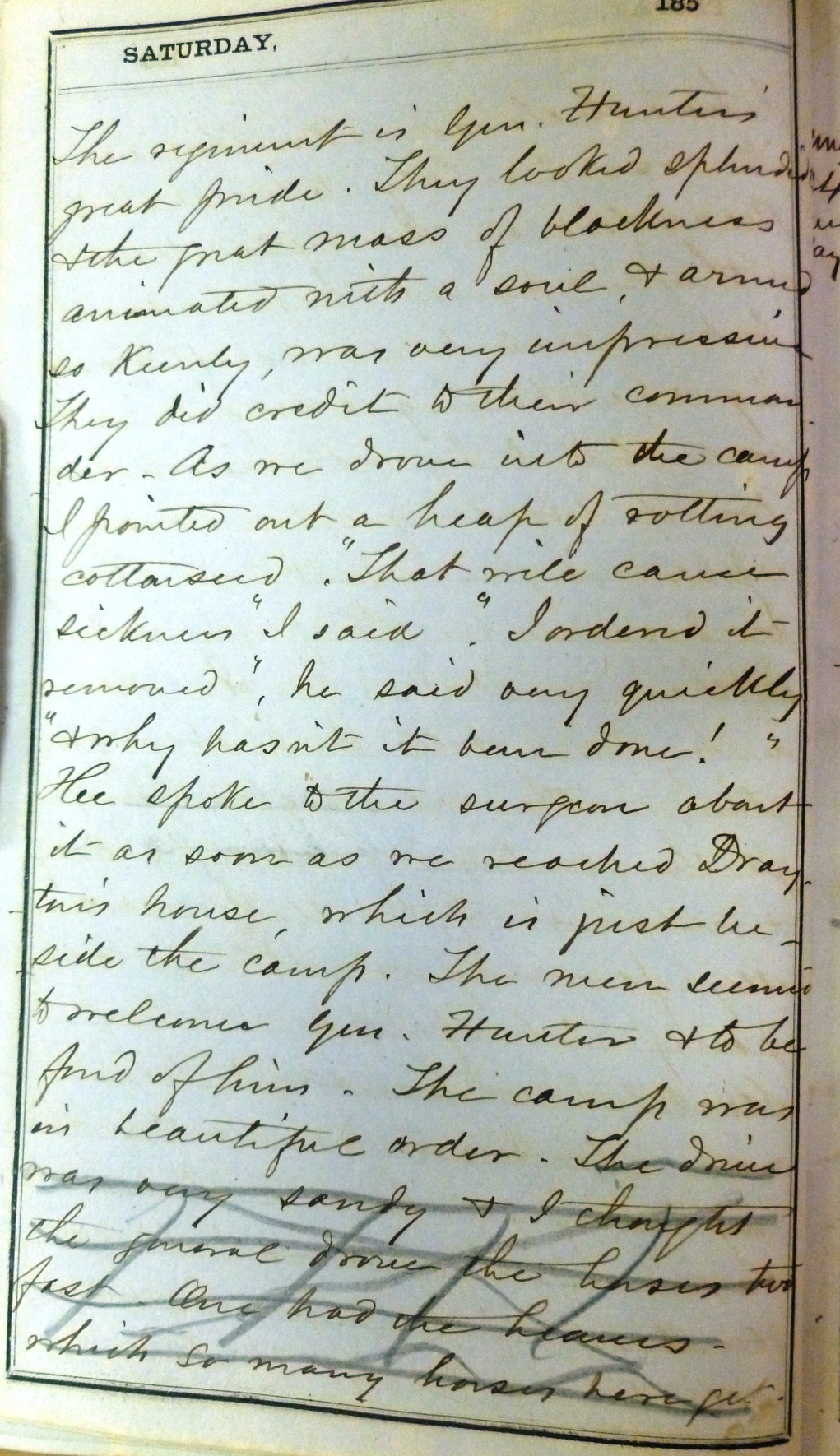Item description: Entry dated 23 June 1862 from the diary of Laura Towne. In this entry she notes the regiment of African American troops organized under General Hunter. In June, Gen. Hunter organized the 1st S. C. volunteers, a regiment composed of formerly enslaved men which was the first of the kind to be mustered into the U. S. volunteer service
[Transcription available below images]
Item citation: From folders 335a-b in the Penn School Papers, Southern Historical Collection, Wilson Library, University of North Carolina at Chapel Hill.
Item transcription:
June 23, Monday
The McKims and I went to town very early, reaching Beaufort by six A.M. After a walk about, seeing the churches & we went on board the little steamer for Hilton Head & I talked business with Mr. French & Mr. McKim all the way down. The baggage & little birds were transferred to the Ericson, & then we went to the Customs House where we saw Mr. Severann and his son. Then to Gen. Hunters. I went there by command almost of Mr. McKim, an urgent request of Mr. French. I think the General wants to see a live female Gideonite. Mrs. Hunter was very polite. She is a tall lady, (?) woman, children, & very quietly devoted to “David”. She was very pleasant in conversation.
General Hunter drove us out to the camp of the black regiment, which he review. After our return I saw Mr. McKim and Lucy off, the steamer being crowded with the wounded and sick from the battle of Edisto. The Mr. French advised my returning to General Hunter’s. Mrs. H. had asked me to stay all night, but I had declined. Now, however, it was too late to go back to Beaufort in the little steamer and there was no other chance but a sail-boat, so after waiting and hesitating a long time, I consented to the intrusion, and Mr. French escorted me back again, explaining to General and Mrs. Hunter my predicament. They were cordial in their invitation, and I had a long talk with them about plantation matters, sitting on their piazza, the sentry marching to and fro and members of the staff occasionally favoring us with their company.
The regiment is General Hunter’s great pride. They looked splendidly, and the great mass of blackness, animated with a soul and armed so keenly, was very impressive. They did credit to their commander.
As we drove into the camp I pointed to a heap of rotting cotton-seed. “That will cause sickness”, I said. “I ordered it removed”, he said, very quickly, “and why hasn’t it been done?”. He spoke to the surgeon about it as soon as we reached Drayton’s house, which is just beside the camp. The men seemed to welcome General Hunter and to be fond of him. The camp was in beautiful order.




